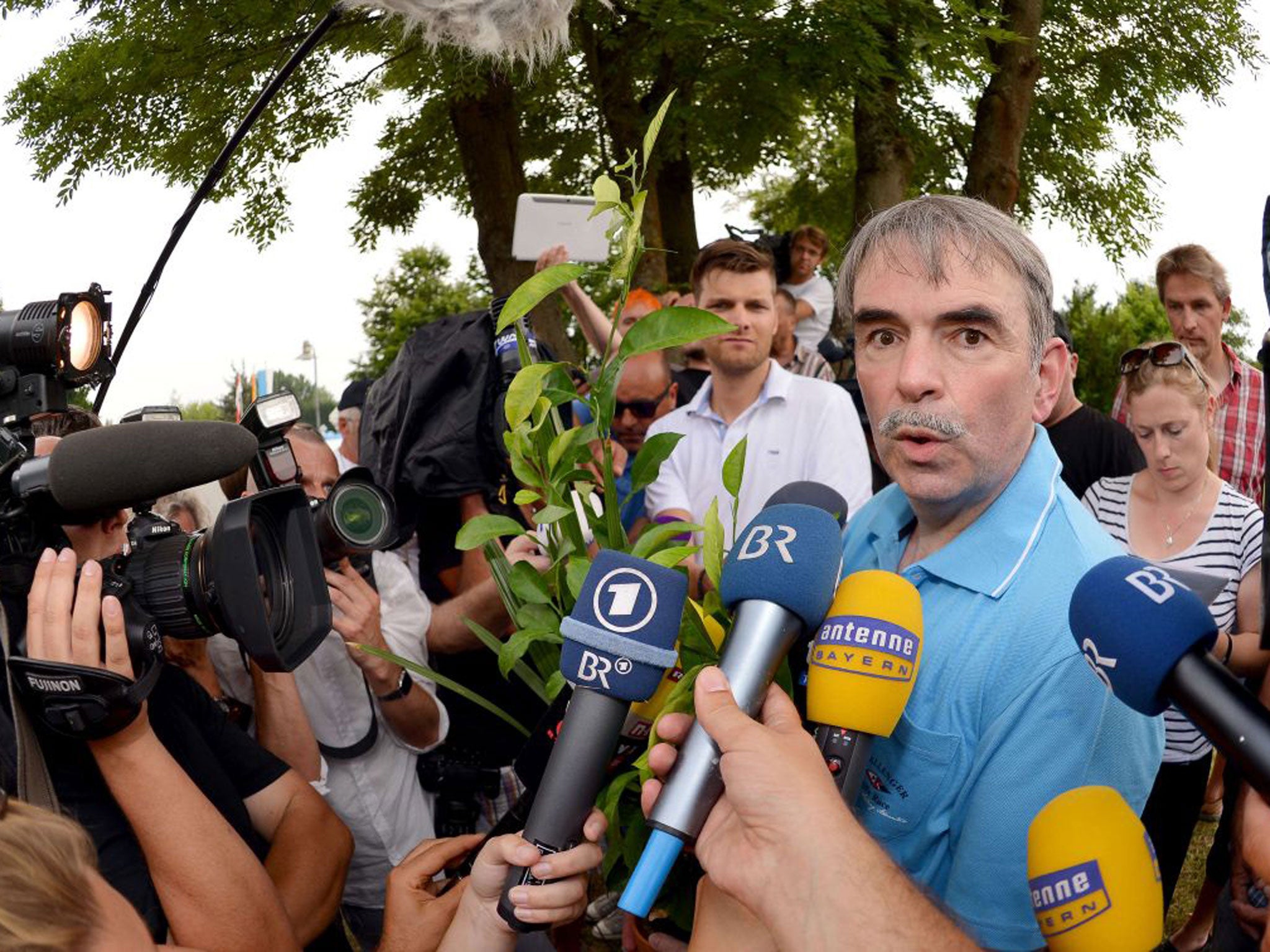'Psychiatric units are places where the law is no longer valid,' says victim of miscarriage of justice released after seven years
Gustl Mollath freed after German high court rules that doctor’s claims he was 'paranoid' were untenable

The victim of what is being called one of Germany’s worst miscarriages of justice pledged to fight to clear his name after being released from the psychiatric unit where he had been forcibly held for seven years, having exposed his wife’s alleged part in a banking scandal.
Gustl Mollath, 56, was freed from de facto imprisonment in a secure hospital in Bayreuth, Bavaria, on Tuesday after a high court intervened and ruled that a doctor’s claims that he was “paranoid” were untenable.
In an interview with the Süddeutsche Zeitung, Mr Mollath said he was the victim of a conspiracy involving his wife and judicial authorities. He claimed they colluded to cover up his exposure of a banking scam. “It may require a huge effort but I want to come out of this fully rehabilitated,” he told the newspaper.
Mr Mollath was committed to psychiatric care in 2006 after a court rejected his claims that staff at Bavaria’s Hypo Vereins Bank, including his wife, were smuggling millions of euros into Swiss accounts. His wife had countered with charges against him, claiming that he tried to strangle her.
Judges rejected Mr Mollath’s story and sided with his wife. They subsequently accepted a psychiatrist’s diagnosis that he was suffering from a “paranoid personality disorder” and committed him to indefinite psychiatric care. The verdict was supported by Bavaria’s Justice Minister. However, subsequent evidence contained in a 2003 audit showed that the bank did indeed carry out money-laundering. Mr Mollath’s wife was among a number of employees who were sacked as a result.
The revelations renewed public interest in the “Mollath Affair”. Mr Mollath was inundated with letters and emails from supporters who agreed with his claim that he was a victim of one of the country’s worst miscarriages of justice. His release on Tuesday came after the Nuremberg High Court established that there were serious faults in the doctor’s report that diagnosed Mr Mollath’s alleged paranoia.
Mr Mollath also blamed the Bavarian Justice Minister, Beate Merk, for failing to re-open his case and said he would seek financial compensation.
However, some of his strongest criticism was directed at psychiatrists and staff at the secure unit in Bayreuth, where he spent most of his ordeal. “Psychiatric units are places where the law is no longer valid – most of the people in them are subject to the whims of the doctors and staff,” he said. “Terrible things happen. The majority of the population has no idea what goes on.”
Subscribe to Independent Premium to bookmark this article
Want to bookmark your favourite articles and stories to read or reference later? Start your Independent Premium subscription today.

Join our commenting forum
Join thought-provoking conversations, follow other Independent readers and see their replies